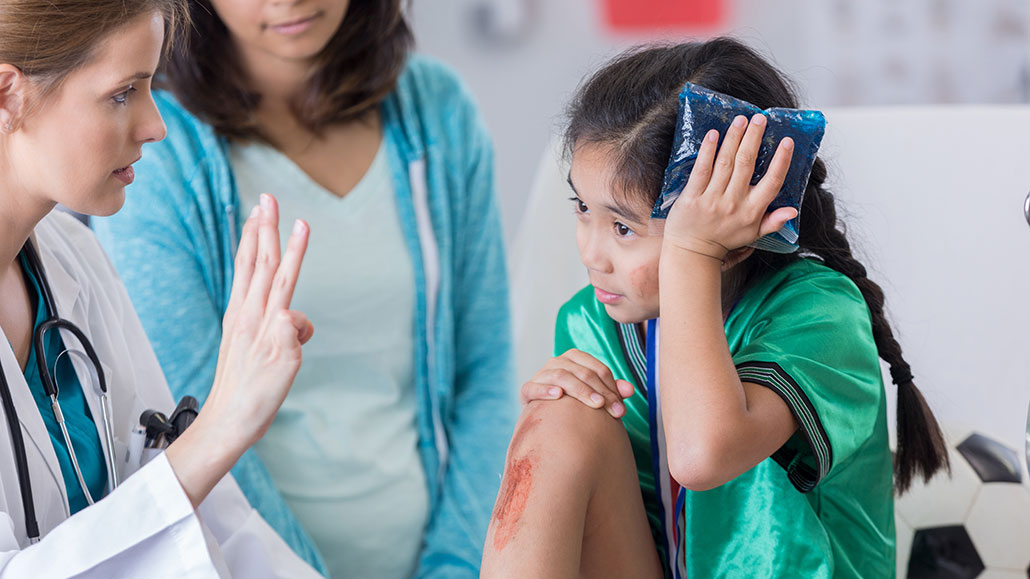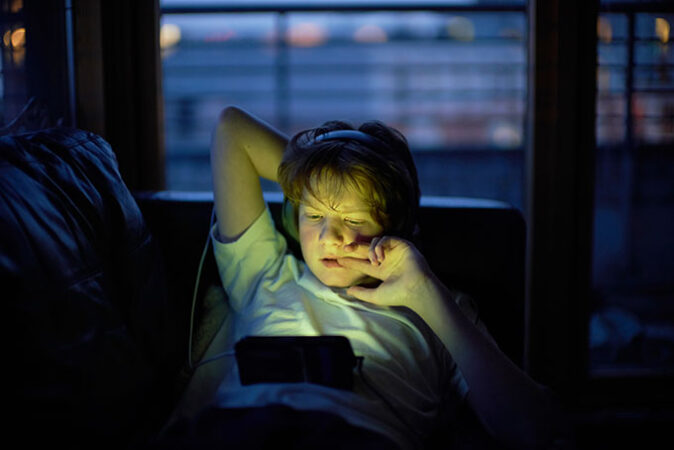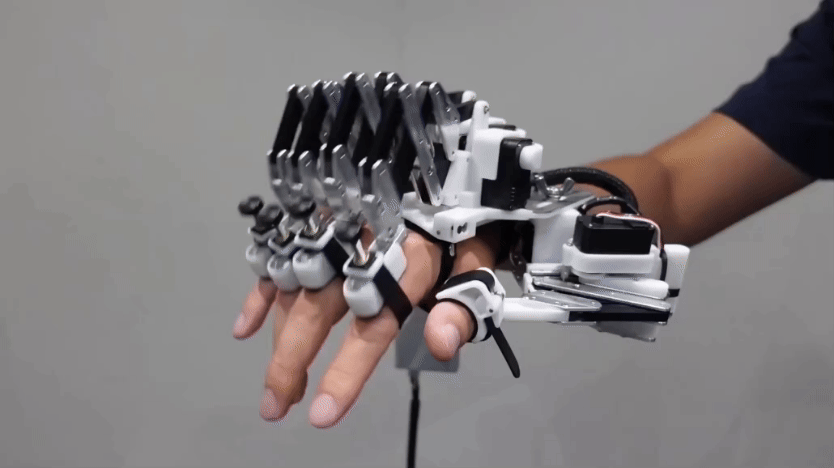Concussion patients should avoid screen time for first two days
Teens may find that hard, but it could speed recovery, a new study finds

How many fingers, a doctor asks? Concussions can cause fuzzy vision, dizziness, headaches, forgetfulness and other problems. In the future, doctors may prescribe going screen-free for at least two days.
SDI Productions/E+/Getty Images
If you get a concussion, stay off screens for a couple of days. That could help you recover and get back to normal activities sooner, new data suggest.
Those findings emerge from a study of 125 patients who came to a Massachusetts hospital’s emergency room within 24 hours of a head injury. All were diagnosed with a concussion.
Researchers randomly assigned the patients, all between the ages of 12 and 25, to two groups. Both groups had a mix of male and female patients. Doctors told all of them to avoid school or work for the first 48 hours, including online work for classes or jobs. They also instructed patients in one group to avoid other screen time for 48 hours. That meant no phones. No TV. No computers. The other group could use screen devices if they wanted, just not for school or work.
For three days after leaving the hospital, people in both groups answered questions about their symptoms. They also reported how many minutes they had used a screen. Over the next week, patients reported on their daily activities and continued the symptom survey. Doctors judged the patients to have recovered when their tally on a symptom survey was 3 or less, out of a total possible score of 132.
Both groups had trouble steering clear of screens. Even those told to avoid all screen access still logged an average of 130 minutes within the first three days. Patients in the other group spent an average of 630 minutes with their screens.
All of the patients got better. On average, though, people with less screen time improved sooner. The “no-screen” group’s recovery time was roughly 3.5 days, compared to 8 days for patients in the other group.
Ted Macnow and his team shared their results in the September 7 JAMA.
Macnow is a children’s emergency medicine doctor. He works at the University of Massachusetts Medical School in Worcester and the UMass Memorial Children’s Medical Center there. “Definitely,” he says, using screens in the first two days after a concussion “prolongs your symptoms.”
He wasn’t surprised. Rest and quiet can help the brain heal after an injury, he explains. The problem with those screens is that they stimulate the brain with light. Some activities also play loud sounds, which ups the stimulation load even more.
Teens spend a lot of time on phones, computers and tablets, as well as in front of the TV. Their screen time, one 2019 U.S. survey found, averages about seven hours per day. Those data, from a report by Common Sense, a nonprofit group based in San Francisco, Calif., didn’t even include time spent on screens for school or homework.
Not surprisingly, debate about screen time’s possible effects in people with concussions has raged for years. Until now, however, “no one had ever actually done a specific study looking at that question,” Macnow says. Meanwhile, “every single parent and kid wanted to know what they could do [while recovering] at home.”

How might screen time hurt?
Why screens slow recovery is unclear, Macnow says. The light they emit might overwhelm a brain needing rest to heal. Or, he suggests, screen time might take the place of other activities, like getting out for a walk. He and other researchers are still trying to figure out how much activity is helpful. Screens can even mess with people’s sleep. And, Macnow points out, “we know that sleep is very important for dealing with concussions.”
Andre Obenaus says “this is an interesting study, because they’ve really gone out of their way to quantify it.” A brain scientist, Obenaus works at the University of California, Irvine. Overall, he says the group’s new study adds support to the idea that reduced brain activity right after a concussion aids recovery.
The new study only looked at patients who sought medical help, Obenaus notes. It’s unclear whether the same findings would hold for less severe cases. He also wonders why the team chose to avoid screens for just two days. Might doing so longer aid recovery even more? And is there a difference in benefits between girls and boys? Some research, he notes, has suggested the female brain may be more sensitive to sports concussions.
Macnow’s group recommends recruiting more participants for further study. They also agree with Obenaus that the study raises more questions. In the future, says Macnow, “we’ll be looking at particular types of screen time and if one is much worse than the others.” For now, he offers clear advice: “If you get a concussion, you should be avoiding screens for at least two days.”







